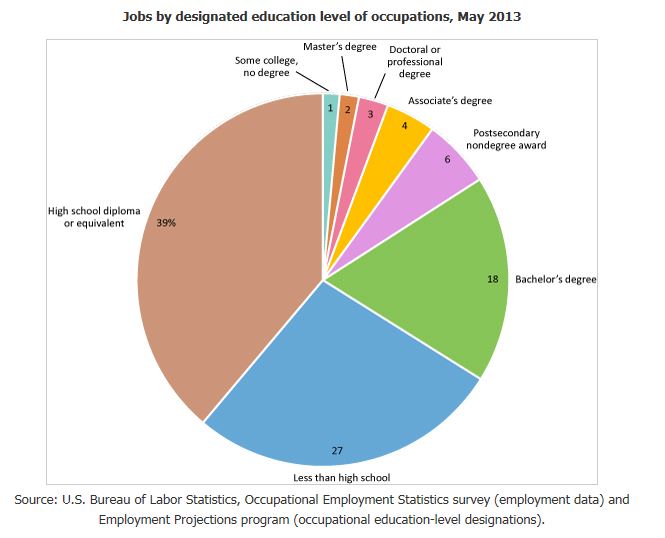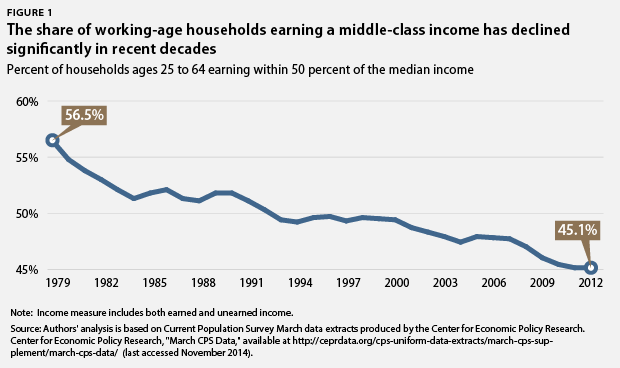THE TRUTH ABOUT THE JOB MARKET: THERE ARE MORE JOBS REQUIRING LESS THAN A HIGH SCHOOL DIPLOMA THAN THOSE NEEDING A BACHELOR’S DEGREE
Today, however, it’s a different story altogether. Nowadays, the majority of available jobs come with low wages. And when the high costs of living are added to the mix, it becomes clear that it is time for a change in our way of thinking.
THE MAJORITY OF JOBS ARE LOW-WAGE
In the following chart, which shows the number of available jobs in May 2013 by percentages, jobs requiring less than a high school diploma exceeded those requiring a Bachelor’s degree, 27% versus 18%. More, when the number of available jobs which require a high school diploma or equivalent is added to the number of jobs which need less than a high school diploma, we find that 66% of available jobs – almost 7 in 10 – required less than a college degree! If the majority of available jobs are low-wage and costs of living continue to rise, how are people supposed to make it by hard work alone?

13 OF 20 MOST PROJECTED NEW JOBS HAVE WAGES LESS THAN $35,000
Making matters even worse, of the 20 occupations with the highest projected change in employment 13 have 2015 median pay below $35,000. Additionally, out of the top 5 new jobs, four have 2015 median wages of $22,000 or less.
From the Bureau of Labor Statistics:

I hate to be the bearer of bad news, but the situation is only going to get worse. Most employees are in a no-win situation. Over the next few decades, workers will be competing with advancing technology, a global workforce, and a slowing economy. The average person has no idea how bad things are going to get. The amount of households earning a middle-class income will continue its decline, as the economy around us continues to change.

FINANCIAL EDUCATION
The good news is you don’t have to be a victim. The coming economic storm can be weathered through financial education. As the case has been throughout history, the most volatile times present some of the best opportunities! But those opportunities go to those who are prepared to recognize their arrival. What’s stopping you?








